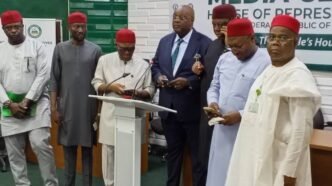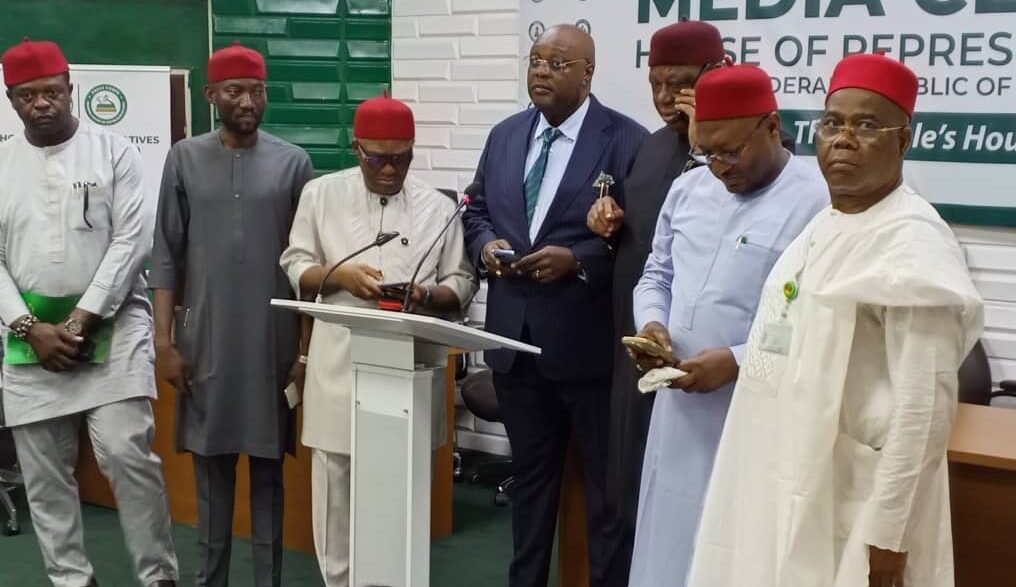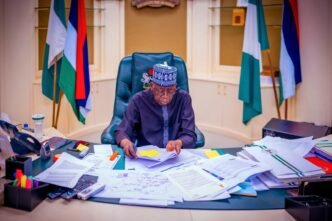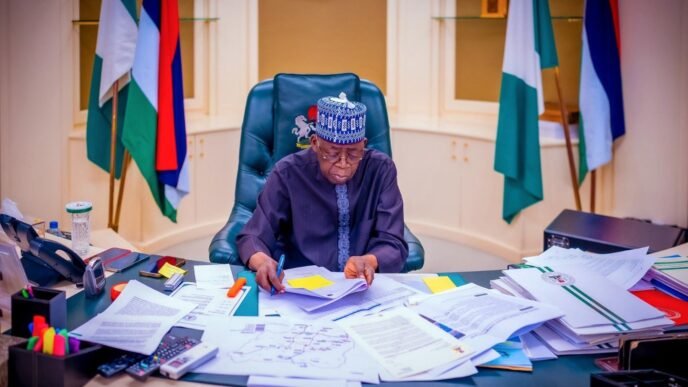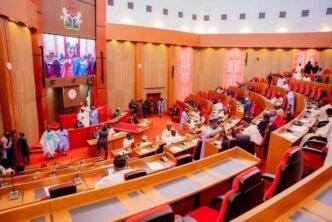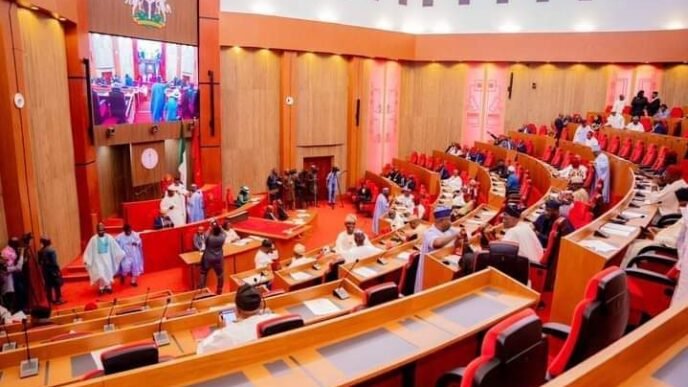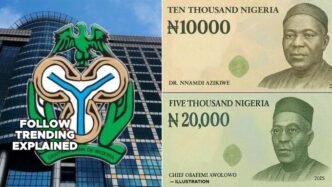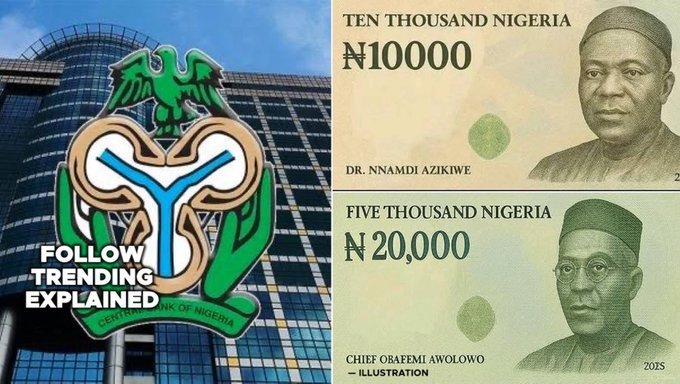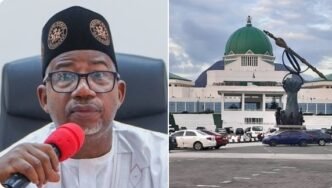In a stunning political development that has shaken Nigeria’s political landscape, all five members of the House of Representatives from Enugu State have officially defected to the All Progressives Congress (APC), the ruling party at the federal level. Their defection, confirmed on Thursday, October 30, 2025, during plenary at the National Assembly in Abuja, marks one of the most significant realignments in the country’s recent political history.
The lawmakers, all previously elected under the platform of the Peoples Democratic Party (PDP), cited internal crises, irreconcilable differences, and the need to align with the “centre of power” as reasons for dumping their former party. They were joined by another lawmaker from Plateau State, who left the Labour Party (LP) for the APC, further consolidating the ruling party’s influence in the House of Representatives.
The Defectors
The Enugu lawmakers who defected include:
- Hon. Nnolim Nnaji, representing Nkanu East/Nkanu West Federal Constituency.
- Hon. Chidi Obetta, representing Nsukka/Igbo-Eze South Federal Constituency.
- Hon. Dennis Agbo, representing Igboeze North/Udenu Federal Constituency.
- Hon. Anayo Onwuegbu, representing Oji River/Awgu/Aninri Federal Constituency.
- Hon. Martins Okei, representing Ezeagu/Udi Federal Constituency.
They were joined by Hon. Daniel Asama Ado from Plateau State, who was elected under the Labour Party. The six lawmakers formally announced their decision to the Speaker of the House of Representatives, Rt. Hon. Tajudeen Abbas, through individual letters read on the floor of the chamber.
Reasons for Defection
In their letters, the lawmakers attributed their decision to the “deepening crisis and unresolved leadership issues” within the Peoples Democratic Party and Labour Party at both the national and state levels. According to them, their former parties had become “incapable of providing the stability, unity, and political direction needed to serve the people effectively.”
One of the defectors, speaking to journalists shortly after plenary, said the move was a “strategic and progressive decision” meant to attract more federal attention and development projects to Enugu State.
“We cannot continue to stay in a party that is divided and lacks a sense of direction. Our people deserve better representation, and aligning with the ruling APC gives us the leverage to bring more development to our constituencies,” one of the lawmakers said.
Another member emphasized that the PDP in Enugu had “completely lost touch with grassroots realities,” adding that most members had already lost confidence in the party’s leadership.
Speaker Welcomes Lawmakers
Receiving the defectors, Speaker Tajudeen Abbas welcomed them into the fold of the APC, commending their decision as “patriotic and forward-thinking.” He said the House under his leadership would continue to accommodate all members irrespective of their political affiliations but described the move as a reflection of “growing confidence” in the administration of President Bola Ahmed Tinubu.
“This is a testament to the faith Nigerians are beginning to have in the Renewed Hope Agenda. We welcome our new members from Enugu and Plateau who have chosen to work with the government at the centre to deliver progress for our country,” Abbas said.
Following their defection, the lawmakers were escorted to the front row of the House chamber by other APC members, who chanted solidarity songs, symbolizing their full integration into the ruling party’s caucus.
Implications for the PDP and South-East Politics
The mass defection of all Enugu representatives represents a major blow to the PDP, which has historically dominated Enugu State politics since the return of democracy in 1999. For over two decades, the PDP had maintained an unbroken hold on the state, producing governors, senators, and members of the National Assembly under its banner.
However, the latest development underscores a gradual political shift in the South-East region, where opposition parties such as the APC and LP have been making inroads in recent years. Analysts believe the move could signal the beginning of a broader realignment ahead of the 2027 general elections.
Dr. Chuks Okorie, a political analyst at the University of Nigeria, Nsukka, described the defections as “a turning point in Enugu’s political trajectory.”
“For the first time, Enugu’s entire representation in the House of Representatives is now under the APC. This changes the balance of power and weakens the PDP’s influence both in the state and nationally,” Okorie explained.
“The message is clear: lawmakers want to be closer to the federal government where real decisions are made, especially with the APC controlling both the presidency and the legislature.”
APC’s Growing Majority in the National Assembly
With the addition of the six new members, the APC has further strengthened its numerical advantage in the House of Representatives. The party now edges closer to a two-thirds majority, giving it greater legislative control to pass key policies, motions, and constitutional amendments in line with President Tinubu’s development agenda.
Political observers say the defections are part of a broader strategy by the APC to consolidate power across regions, particularly in the South-East where the party seeks to expand its base. The move also appears to be part of efforts to project the ruling party as a national movement with increasing acceptance beyond its traditional northern and southwestern strongholds.
PDP Reacts, Describes Move as “Political Opportunism”
Reacting to the development, the Peoples Democratic Party described the defections as “acts of political opportunism driven by personal interest rather than ideology.” A spokesperson for the PDP National Working Committee said the defectors would be replaced in due time, and that the party was already consulting legal experts on the constitutional implications of their move.
“There is no genuine division in the PDP at the national level to justify defection under Section 68 of the 1999 Constitution. These lawmakers should vacate their seats because their actions amount to betrayal of the mandate given to them by the people under the PDP,” the spokesperson said.
The party further accused the APC of “weaponizing federal power” to lure opposition lawmakers with promises of patronage and political protection.
Constituents React: Hope and Skepticism
In Enugu, reactions have been mixed. Some constituents expressed optimism that aligning with the ruling party could unlock federal projects, especially in infrastructure, power, and employment. Others, however, described the move as “self-serving,” arguing that the lawmakers acted without consulting their constituents.
A youth leader in Nsukka, Emeka Ani, said the people would judge the lawmakers by their performance, not their party affiliation.
“If this defection brings development, jobs, and better representation, then we will support them. But if it’s just politics for personal gain, they will face the consequences at the ballot box,” he said.
Looking Ahead
As Enugu’s entire delegation in the House of Representatives now identifies with the APC, political watchers believe the state could witness closer collaboration with the federal government in the coming months. However, the move also risks deepening divisions within the state’s political landscape, especially with local elections approaching in 2026.
For President Tinubu and the APC leadership, the defections are both symbolic and strategic — demonstrating growing acceptance of the ruling party in the South-East and reinforcing its legislative dominance ahead of future reforms.
For the opposition, particularly the PDP and Labour Party, the development serves as a wake-up call to rebuild internal unity, strengthen grassroots engagement, and reconnect with voters who increasingly see alignment with the centre as the key to political relevance.
Conclusion
The defection of all Enugu State House of Representatives members to the APC marks a major political milestone with far-reaching implications. Beyond the immediate numbers, it represents a shift in Nigeria’s regional political dynamics, one that could reshape alliances and influence the 2027 elections. As the dust settles, the focus will now turn to whether the defectors can deliver tangible results to justify their decision — or if history will remember it as yet another episode of Nigeria’s enduring politics of survival and realignment.

